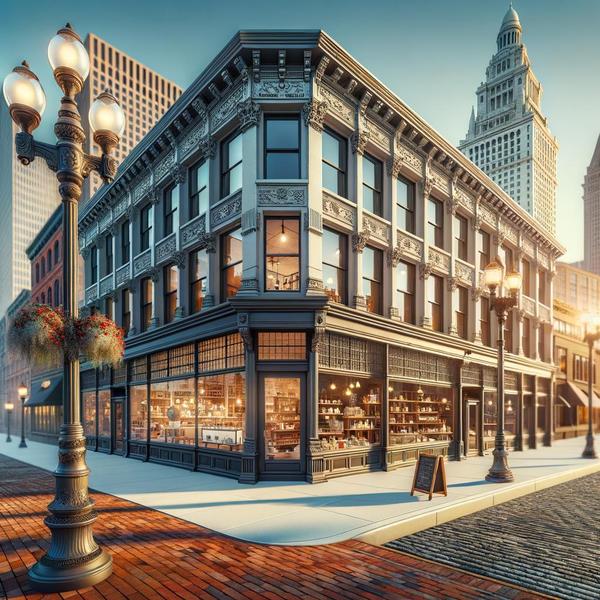The History of Cleveland, GA: From Early Settlements

The History of Cleveland, GA: From Early Settlements to Today
Nestled amidst the stunning Appalachian Mountains in North Georgia, Cleveland, GA, offers more than just picturesque landscapes. Its rich history is woven into the fabric of its modern-day charm. From early Native American inhabitants to today's bustling community, Cleveland's history stands as a testament to enduring progress and resilience. In this comprehensive blog post, we delve into the fascinating journey of Cleveland, highlighting its formative years through to its remarkable evolution. Join us as we explore the captivating history of Cleveland, GA, from early settlements to today.
Early Indigenous Settlements
Long before European settlers arrived, the area now known as Cleveland was the domain of Native American tribes. The Cherokee, one of the prominent tribes in the region, established a significant presence. Their rich culture, traditions, and interaction with the land set the foundation for the area. Native hunting grounds, trails, and trading networks formed the initial blueprint of settlement patterns that would influence future developments.
European Arrival and Settlement
The first European settlers arrived in the 18th century. Drawn by the allure of fertile lands and the prospect of new opportunities, these pioneering families faced the rugged landscapes with determination. By the early 19th century, Cleveland became a focal point for European settlers, leading to conflicts and eventual treaties with the indigenous Cherokee people, most notably the Treaty of New Echota. This treaty paved the devastating Trail of Tears, where the Cherokees were forcefully relocated.
Formation of White County
In 1857, the formal establishment of White County laid additional groundwork for Cleveland's growth. Named after David T. White, a state legislator, the creation of White County signaled a commitment to governance and community. Its location amidst North Georgia's rolling hills provided not only a fertile ground for agriculture but also a secure haven away from the burgeoning metropolis of Atlanta.
The Civil War and Reconstruction Era
Cleveland, like much of the South, bore witness to the Civil War's tumult. Despite its rural setting, the war's impact was palpable, affecting local economies and communities. Post-war reconstruction ushered in a period of rebuilding and renewal. The establishment of schools and churches during this era played a pivotal role in healing and reinvigorating communal spirit.
Economic Growth in the 20th Century
As the 20th century dawned, Cleveland transitioned from an agrarian-centric economy to embracing varied industries. The establishment of textile mills and the growth of agriculture, particularly poultry farming, marked a dynamic shift in the local economy. These developments fostered job creation and attracted new residents, transforming Cleveland into a thriving hub in North Georgia.
Cleveland in Modern Times
Today, Cleveland balances its venerated history with modern advancements. It is a testament to maintaining heritage while fostering progress. Key developments, such as improved infrastructure, educational institutions, and cultural centers, have bolstered Cleveland’s reputation as a growing city. Exhibiting a blend of historical charm and contemporary amenities, Cleveland continues to attract both residents and visitors alike.
Distinctive Landmarks and Cultural Heritage
Cleveland boasts a rich array of landmarks that underscore its historical significance. The White County Courthouse, a stately symbol of the area's legal and societal milestones, offers a reflection of the architectural styles emblematic of different eras. Likewise, the annual festivals and cultural events foster a deep sense of community and pride, all while celebrating Cleveland’s diverse heritage.
Tourism and Natural Beauty
With its breathtaking landscapes, Cleveland is a gateway to the great outdoors. Nearby attractions such as the picturesque Yonah Mountain invite adventure seekers and nature enthusiasts. The city is also a starting point for journeys along the scenic Appalachian Trail. These natural assets have firmly planted Cleveland on the map as an authentic destination for recreational activities and eco-tourism.
FAQs About Cleveland, GA
Q: What are some notable historical sites in Cleveland, GA?
A: The White County Courthouse and local museums are key sites that chronicle the area's rich history.
Q: How did Cleveland, GA get its name?
A: The city was named after Colonel Benjamin Cleveland, a Revolutionary War hero, commemorating his contributions.
Q: What events highlight Cleveland's cultural calendar?
A: Festivals such as the annual Mountain Moonshine Festival and local craft fairs celebrate the area's heritage and talent.
Final Thoughts
Cleveland, GA's history is as inspiring as it is complex. From its earliest beginnings to the vibrant community it is today, Cleveland stands as a testament to the perseverance and progress of its people. Whether you're an avid historian or a curious traveler, the captivating narrative of Cleveland offers valuable insights into the fabric of American history. Explore Cleveland, and experience a remarkable page in the story of North Georgia.
Categories
- All Blogs (590)
- Achasta Golf Community (76)
- Cleveland, GA (43)
- Dacula, GA (43)
- Dahlonega GA (113)
- Dawsonville, GA (44)
- Gainesville, GA (45)
- Gold Peach Realty (5)
- Helen, GA (44)
- Home Buying Tips (17)
- Home Décor And Interior Design (7)
- Home Improvement Tips (15)
- Home Selling Tips (20)
- Homes For Sale (45)
- Lake Lanier, GA (69)
- Local Events (13)
- Local Guides (17)
- Mortgage And Finance Tips (23)
- North Georgia (11)
Recent Posts










GET MORE INFORMATION

